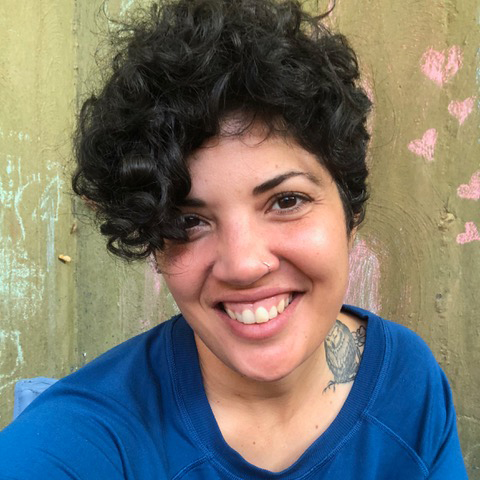
In this series, Shawna Ayoub moves "beyond a book review" in not only recommending great books by diverse writers but highlighting a technique to apply to your own writing practice.
Come Out, Come Out by Natalie C. Parker
On the drive to return my non-binary 13-year-old to their father, I optimistically downloaded Come Out, Come Out by Natalie C. Parker. My newly-minted teen loves horror, romance, and all things queer. This book by a queer author promised all of that, and it is marketed for young adults. With an audio read time that fit sweetly into our drive time, I thought we were set.
Naturally, I was wrong. I ended up listening to the book on my own. Wow. I wished I had company. It was just as horrific as promised. Parker managed to touch on all the parts of being a closeted queer kid in a community that takes that step past unsupportive into the territory of conversion therapy.
In Come Out, Come Out, Fern, Jaq and Mallory and discovering their queer identities, but their families aren’t the kind with whom they can share identities that don’t conform to a hetero-patriarchal standard. It gives living in America in 2025, honestly. They take to spending time in the forest; sneaking away and having their own adventures gives them space for greater discovery. But one of their trips into the woods ends with Mallory’s disappearance. Jaq and Fern struggle to remember the details. Ultimately, they drift apart until years later when they both step into the edge of the woods during a party and find each other, memories flooding back.
When the pair begin to face why they drifted apart, they are haunted. Literally and figuratively. There is a mystery here that Fern and Jaq need to solve. The woods pulls them deeper, back to the house where they once felt safe, and where they uncover the truth of what happened to Mallory.
It would be one thing to discover your friend has died. It would be another to discover your friend was snatched and put in conversion therapy. But what happened to Mallory is altogether worse. Fern and Jaq have to fight for themselves, for Mallory, and for all the children like them.
Coming into your true self
The horror in this book was, for me, whole. Content warning for emotional abuse. I grew up in a home where gaslighting was a conversational staple. When I had experiences my parents didn’t want or like, they simply denied them and told me it was my imagination. I grew up believing I was mad and wicked. But I also believed I was heterosexual, because my “deviance” was framed as either misremembering or whisperings of Satan. “Get thee behind me” was something I uttered regularly, convinced the devil was leaning over my shoulder. I’d shiver all the time from my certainty of his presence. The point is, my queerness was so heavily subverted by the denial of my thoughts and experiences that it took me until age 36 to look back into my childhood and realize why, in kindergarten, I blushed and my heart raced anytime my friend kicked her legs up on the swings and I saw her panties.
It’s still unclear to me whether my parents saw my same-sex attraction. It doesn’t actually matter because their comments about others were extensive and derisive. It was clear that women were for men. Period. And when I broke the mold, so to speak, my father cut me off. Like the kids in Come Out, Come Out, by coming into myself—by choosing to accept myself and express myself in the way that is most natural and joyful—I am releasing those in my life who are unable to also find joy in my natural existence.
Is there any greater horror than being denied love by those you most want to love you in order to love yourself?
But I’d like to move away from that and also ask if there’s any greater joy than sitting fully in yourself and knowing that who you are is who were born to be?
A writing exercise
Let’s address the question, Who am I? For 15-20 minutes, write into your identity. Write what you know about yourself and why. Share what you do that aligns with what you feel in your heart. What lights you up? What actions and reactions let you know you are doing or being what and who you are meant to be?
Don’t forget to check in with yourself afterward!
Have you ever written about identity before, or tried to answer the question, who am I? Will you try this exercise? Read this book? Let us know how it goes in the comments.
If this month’s title sounds intriguing to you, consider purchasing your own copy of Come Out, Come Out from Bookshop.org in support of independent bookstores across the U.S.
Read this post on the Center's Substack and subscribe, if you haven't already, to receive posts like this in your inbox every Wednesday.
